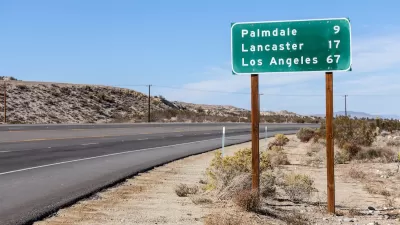The escalating health impacts of climate change, from extreme heat to sea level rise, highlight the urgent need for integrated medical education, proactive communication, and sustainable policy solutions to protect public health.

As climate change intensifies, its wide-ranging health impacts demand urgent attention, particularly as extreme weather events and environmental changes disrupt public health systems. Medical schools in the U.S. are increasingly integrating climate-related health topics into their curricula, recognizing the need for future doctors to identify and treat climate-driven health issues. Communication strategies for educating the public emphasize trusted sources, narratives, and actionable insights to inspire climate-friendly behaviors. Economic losses from extreme weather have reached $227 billion since 2010, underscoring the need for proactive measures to mitigate risks and reduce emissions.
Extreme heat is emerging as a critical health challenge, with heat-related mortality among older adults increasing by 167 percent compared to the 1990s. Heat waves not only exacerbate chronic health conditions but also disrupt sleep, physical activity, and food security. Agricultural workers face heightened risks from rising temperatures, affecting crop reliability and prices. Meanwhile, urban areas are grappling with the heat island effect and power grid stress, prompting cities to explore innovative adaptation strategies to safeguard public health and infrastructure.
Infectious diseases are also being reshaped by climate change, with rising temperatures expanding the geographic range of vector-borne diseases like dengue and malaria. Zoonotic diseases are increasing due to altered ecological patterns, while antibiotic-resistant bacteria and food-borne illnesses are becoming more prevalent. Wildfire smoke, another escalating concern, poses widespread health risks even in regions far from active fires. It contributes to respiratory and cardiovascular conditions and strains healthcare systems during wildfire seasons, with long-term effects particularly concerning for vulnerable populations.
Sea level rise and standing water further amplify health risks, displacing coastal populations and contaminating freshwater supplies with saltwater. These changes disrupt sanitation systems, increase exposure to waterborne pathogens, and disproportionately affect low-income and vulnerable communities. Concurrently, air pollution from fossil fuels continues to impact health, though transitions to clean energy have shown immediate benefits such as reduced asthma-related ER visits and lower preterm birth rates. Addressing these interlinked challenges requires robust action across health, environmental, and policy domains to ensure a sustainable and equitable future.
FULL STORY: Climate and health: Stories to watch in 2025

Maui's Vacation Rental Debate Turns Ugly
Verbal attacks, misinformation campaigns and fistfights plague a high-stakes debate to convert thousands of vacation rentals into long-term housing.

Planetizen Federal Action Tracker
A weekly monitor of how Trump’s orders and actions are impacting planners and planning in America.

Chicago’s Ghost Rails
Just beneath the surface of the modern city lie the remnants of its expansive early 20th-century streetcar system.

Bend, Oregon Zoning Reforms Prioritize Small-Scale Housing
The city altered its zoning code to allow multi-family housing and eliminated parking mandates citywide.

Amtrak Cutting Jobs, Funding to High-Speed Rail
The agency plans to cut 10 percent of its workforce and has confirmed it will not fund new high-speed rail projects.

LA Denies Basic Services to Unhoused Residents
The city has repeatedly failed to respond to requests for trash pickup at encampment sites, and eliminated a program that provided mobile showers and toilets.
Urban Design for Planners 1: Software Tools
This six-course series explores essential urban design concepts using open source software and equips planners with the tools they need to participate fully in the urban design process.
Planning for Universal Design
Learn the tools for implementing Universal Design in planning regulations.
planning NEXT
Appalachian Highlands Housing Partners
Mpact (founded as Rail~Volution)
City of Camden Redevelopment Agency
City of Astoria
City of Portland
City of Laramie





























